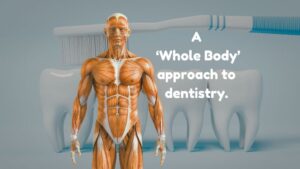People who suffer from facial pain might not be clear on the differences between facial pain, Trigeminal Neuralgia, and TMJ pain. Finding a dentist who knows and understands how to diagnose each of these and provide specialized treatment in Noblesville might have been a challenge.
Ongoing facial pain is a serious matter as it can have a significant impact on your ability to eat, sleep, work, or just look and feel your best. Chewing food usually exacerbates facial pain, and sleep can be nearly impossible without unhealthy doses of painkillers. But who do you turn to for relief?
Dr. Mike Deldar at Deldar Dental in Noblesville:
“Trigeminal Neuralgia can dramatically reduce the quality of life. It is a chronic pain condition that affects the trigeminal nerve that carries sensation from your face to your brain. The debilitating pain can be so severe that even minor activities such as brushing your teeth, shaving, or putting on make-up can trigger a jolt of excruciating pain.”
Trigeminal neuralgia is caused by a blood vessel pressing against the trigeminal nerve. Over time, the pulse of an artery rubbing against the nerve can wear away the sheath or insulation, called myelin, that surrounds the nerve. This leaves the nerve exposed and highly sensitive.
While both Temporomandibular Joint pain (TMJ) and Trigeminal Neuralgia cause severe facial pain, the causes and nature of the pain are different. WithTMJ disorders, facial pain is caused by a misaligned bite, and issues with the meniscus in the jaw joints. TMJ pain feels more like arthritis and can lead to migraine headaches. Trigeminal Neuralgia pain is different – it is sharp like an electrical jolt and is usually only on one side of the face.
No one should have to suffer from long-term facial pain
At Deldar Dental we believe that: Treatment of facial pain should be clear, accessible, and affordable. Dr. Deldar has over 20 years of experience and is an Indianapolis top-awarded dentist. As a Neuromuscular TMJ specialist, he has treated many patients with TMJ who have received the benefit of his experience and extensive post-graduate training.
People with TMJ can experience severe migraines, pain, or tenderness in one or both jaw joints, in their neck or shoulder, behind the ear, in and around the eyes, sinus pain, and painful chewing or locking and clicking of the jaw joint.
TMJ can be caused by an imbalanced bite, injuries, poor posture, teeth grinding or clenching, and deterioration of the jaw joint. Dr. Deldar diagnoses TMJ using T.E.N.S. (muscle relaxation therapy), Jaw Motion Tracking to observe current jaw activity, position and function, and EMG testing to monitor muscle activity and tension problems.
How can a TMJ dentist help patients with Trigeminal Neuralgia?
By putting pressure on nerves and blood vessels, jaw muscles can initiate the triggers that lead to tension headaches and migraines. Tightness in the jaw from TMJ can also contribute to the severe facial pain of trigeminal neuralgia. To assist with his diagnosis of TMJ, along with x-rays, Dr. Deldar has a TMJ treatment questionnaire on his website.
He can ascertain if the patient’s pain experience is caused by TMJ. Most trigeminal neuralgia is due to compression or impingement of cranial nerve 5, the trigeminal nerve. In most cases, when Dr. Deldar repositions the lower jaw for a patient, there is often a significant improvement in the symptoms.
Don’t wait for treatment…
- Stop living with facial pain
- Forget about uncertainty
- Leave doubts about the right treatment behind
- End the frustration of not eating and sleeping well
- Escape fears of the problem getting worse
Take care of yourself – now!
- Take control of your pain
- Experience clarity and certainty
- Define a solid treatment plan
- Get your life back
- Enjoy a worry-free, pain-free future
If you are seeking answers regarding your facial pain and want to know if it is TMJ or Trigeminal Neuralgia, schedule an appointment with Dr. Deldar today.




